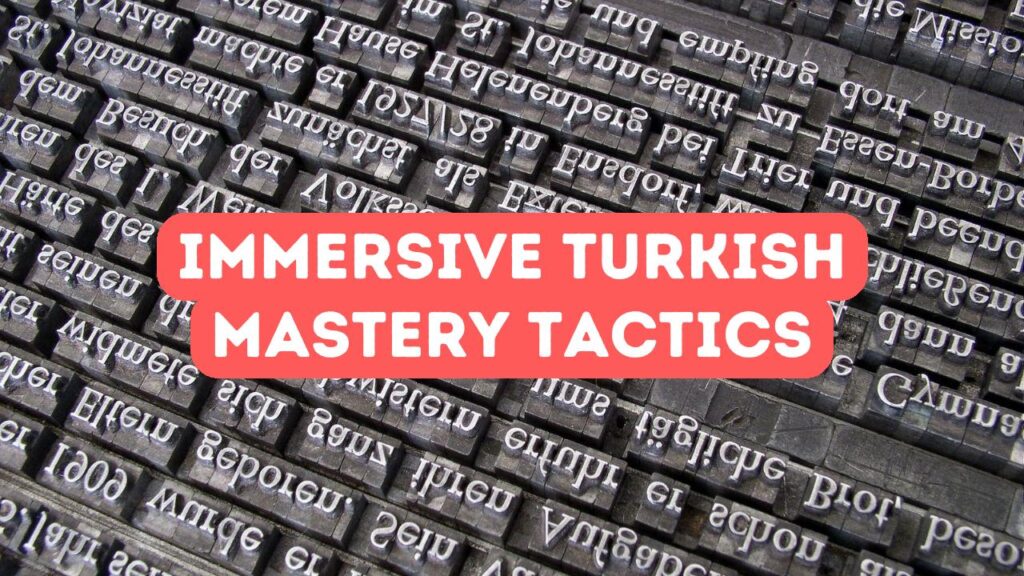Unlocking the Nuances of Turkish Dialogue
Embarking on the thrilling journey of cracking the code of Turkish dialogue begins with understanding the structure and nuance of the language. Central to this is the mastery of common phrases and idioms that form the backbone of day-to-day interactions. Language learners must immerse themselves in the ebb and flow of Turkish conversation, where respectful greetings like Merhaba (Hello) and Nasılsınız? (How are you?) pave the way for deeper engagement. Acknowledging context is crucial; for instance, the use of Teşekkür ederim (Thank you) varies in formality depending on whether you’re conversing with a friend or a business associate. By paying close attention to cultural cues and conversational etiquette, language enthusiasts will not only understand literal meanings but will also capture the emotional undertones that are essential for truly meaningful exchanges.
To further unlock the nuances of Turkish dialogue, it’s imperative to embrace the practice of active listening. This entails not simply hearing words, but paying attention to the subtleties of tone, tempo, and gestures that accompany spoken language. As Turks often express themselves vividly, with a dynamic range of emotions and body language, learners must become astute observers, tuning in to the non-verbal cues that are as informative as the spoken word. Listening to Turkish music, watching local TV shows, or engaging in conversation with native speakers can sharpen one’s ability to pick up linguistic intricacies. Moreover, active listening facilitates a more empathetic understanding of the speaker’s perspective, which is a cornerstone in building rapport and navigating through complex conversations seamlessly.
Completing your linguistic journey requires consistent practice and real-life application of your skills. Engaging actively in Turkish dialogue is akin to joining an intricate dance: each step builds upon the last, reflecting progress and fluidity. Practicing with native speakers, perhaps through language exchange programs or social media platforms, allows for the refinement of pronunciation, the adoption of current slang, and the navigation of conversational subtleties. The confidence to participate in daily conversations blossoms from this active engagement—errors become opportunities for learning rather than barriers to communication. Over time, diligence and perseverance in the art of Turkish conversation will not only make you a proficient speaker but will also endear you to the hearts of those with whom you share this beautiful language.
Elevating Your Turkish Through Practice
Embarking on the journey to elevate your Turkish begins with the foundational practice of immersion. Ingraining the language into your daily routine is tantamount to learning how to instinctively react in various conversational scenarios. Whether it’s by listening to Turkish radio, watching local TV shows, or engaging in language exchange meetups, the key is to surround yourself with the language at every possible turn. This consistent exposure not only familiarizes you with common phrases and idiomatic expressions but also tunes your ear to the nuances of Turkish pronunciation and intonation. As you absorb the rhythm and flow of the language, your ability to articulate and comprehend everyday conversations will organically improve, creating a positive feedback loop that propels your language skills forward.
Building on the solid base of passive exposure, active language practice is vital for mastering daily Turkish conversations. The leap from understanding to speaking requires regular, deliberate speaking exercises. Seek opportunities to converse with native speakers, whether through language learning apps, participating in cultural associations, or by striking up conversations at local Turkish eateries. Mistakes are not setbacks but rather stepping stones to proficiency; each error corrected is a lesson in grammar, vocabulary, and context. Interactive practice not only refines your speaking skills but also enhances your listening capabilities, enabling you to better grasp the subtleties of Turkish dialogue. With each interaction, you gain not just linguistic accuracy but also the cultural insight to use language appropriately in social settings, which is indispensable for true conversational fluency.
Further honing your conversation skills entails embracing the art of reflection and self-evaluation. After engaging in dialogue, take a moment to contemplate the exchange—what went well, what could be improved, and any new vocabulary or phrases encountered. This process can be assisted by keeping a journal specifically for Turkish interactions or recording your voice and listening back to assess pronunciation and fluency. Additionally, setting specific, achievable goals, such as learning and using five new words a day or having a weekly conversation with a native speaker, can provide structure and motivation. Through conscious, reflective practice and goal-oriented learning, your command of daily Turkish conversations will not only develop, but you will also achieve a deeper cultural understanding and a greater sense of personal accomplishment.
Advancing Proficiency in Everyday Turkish Communication
To advance proficiency in everyday Turkish communication, it is crucial to immerse yourself in the practical use of the language. Begin by enriching your vocabulary with common phrases and expressions used in day-to-day interactions. Focus on learning greetings, casual small talks, and essential transactional dialogues that will likely occur in shops, restaurants, and on public transport. Regularly practicing these core phrases not only builds a strong foundation for your Turkish language skills but also helps you to navigate through common scenarios with ease. Remember, the goal is to become comfortable with the ebb and flow of natural conversation, recognizing the nuances and colloquialisms that are the heartbeats of authentic Turkish speech.
Building on this foundation, engagement with native speakers is key to mastering the nuances of Turkish colloquial speech. Take every opportunity to listen and speak, be it through language exchange meet-ups or multimedia platforms like Turkish movies, podcasts, and music. Tuning into these sources exposes you to the rhythm and pitch of Turkish as it’s naturally spoken, allowing your ear to become accustomed to the speed and cadence of the language. Participate in conversation classes or online forums where real-time dialogue offers a challenging yet supportive environment to test your burgeoning skills. Mistakes are inevitable and invaluable in this phase; they are signposts that guide your learning journey. Encourage feedback, and with each correction, you’ll find your confidence and competence growing in equal measure.
As your comfort with the language escalates, begin integrating more advanced conversational elements into your speech, such as idiomatic expressions, humor, and varying degrees of formality, depending on the social context. This is where the subtleties of Turkish etiquette come into play, teaching you not just what to say, but how and when to say it. Engage in discussions on a range of topics to broaden your contextual understanding, from food and tradition to politics and current events. This will not only enrich your vocabulary but will also offer a deeper insight into the Turkish way of life, fostering a greater connection with the culture and its people. With dedication and consistent practice, your daily conversations in Turkish will soon flow with greater ease, and you’ll be able to interact with fluency and sophistication that resonates with true linguistic and cultural awareness.







